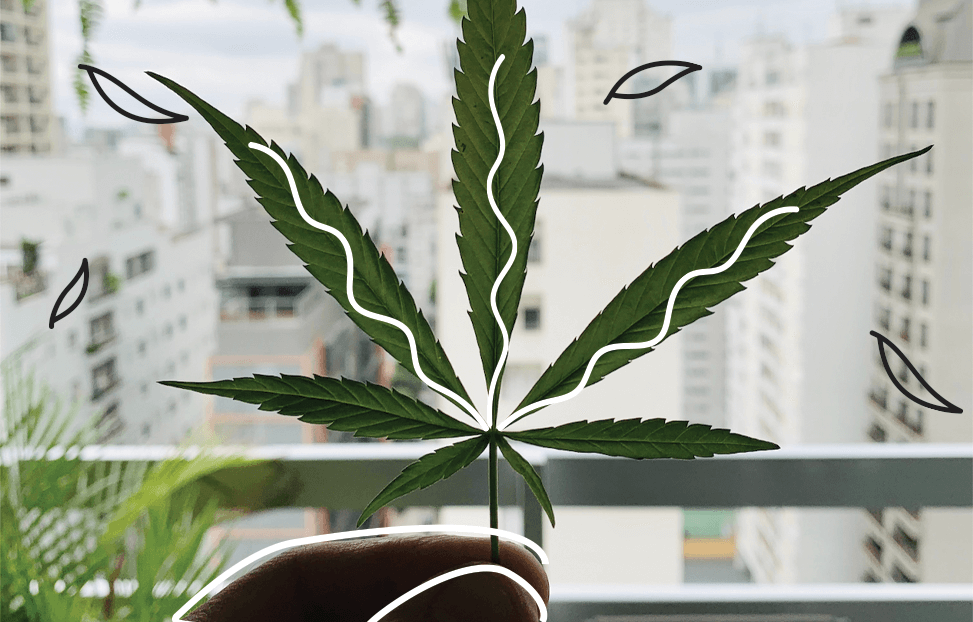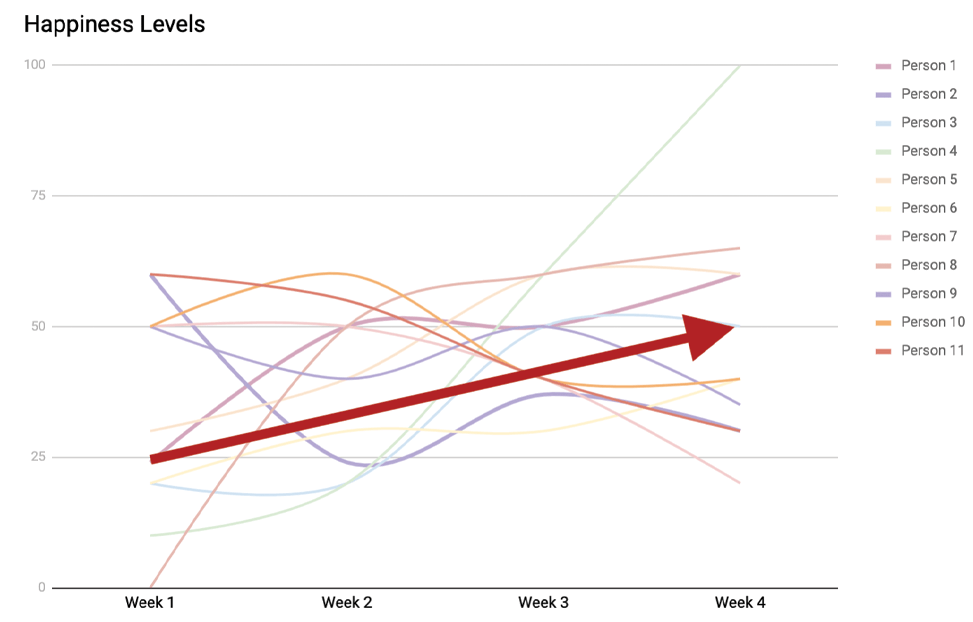Thus Far…
New research has illuminated that endocannabinoids are highly influential neuromodulators which regulate diverse physiological processes including pain perception, motor activity, cognitive processes, neuroprotection, immune responses, inflammatory responses, cardiovascular responses, neurodevelopment, stopping the spread of tumor cells, and more! This is all critical in maintaining the homeostasis of the body—that is the ultimate mission of cannabinoids.
It has been established that activating CB (cannabinoid) receptors can improve depression. Additionally, interventions with CBD have proven themselves unbelievably useful in softening the impact of mood disorders. A theory for how this occurs has been formulated around the term “endocannabinoid tone,” a.k.a. the overall cannabinoid levels in the brain. It is suspected that by increasing the endocannabinoid tone of the brain, one experiences less stress or dissatisfaction. CBD is able to increase endocannabinoid tone by preventing an enzyme, FAAH, from breaking the endocannabinoids of the brain down, which, in turn, increases the number of endocannabinoids in the brain. Other researchers believe that increasing endocannabinoid tone also leads to serotonin reuptake inhibition. When serotonin is released, it creates a feeling of satisfaction.
It should be noted that cannabinoids regulate the release of the amino acid GABA through CB receptors. GABA works as a neurotransmitter, inhibiting certain brain signals in order to produce calming effects. This molecule is a new superstar in the world of psychology, psychiatry, and neuroscience due to research revealing that sufficient GABA release is vital in avoiding depression, anxiety disorders, and regulating sleep (which also helps depression and anxiety, of course).

Photo by Linoleum Magazine on Unsplash
Cannabinoids and Brain Signaling
Research suggests that a dysregulated endocannabinoid system may manifest in stress-related disorders, such as depression. Researchers gave endocannabinoid uptake inhibitors to rats with precursors to depression and depression-related behaviors (they activated the rats’ CB receptors). This activation decreased immobility/depression-related behaviors in the rats at the same rates of antidepressant drugs.
How? The endocannabinoid system regulates neural, behavioral, and endocrine responses to environmental factors. Endocrine responses include the production of hormones, regulation of the metabolism, processes of growth and development, maintenance of tissue function, sexual responses and functions, reproductive health, sleep regulation, mood regulation, and more.
What is quite distinct about endocannabinoids is that they are synthesized and released in direct response to physiological and pathological stimuli. Endocannabinoids are one of the most important retrograde messengers of the brain. This means they are one of the most important chemical messengers of the brain regarding stress-management in the event of aversive stimuli.
Research has speculated that this retrograde signaling is the mechanism by which endocannabinoids play such a central role in synaptic transmission and plasticity, i.e., emotional responses and ability to change those responses.
Cannabinoids and Emotions
Furthermore, research has been continually pointing to endocannabinoid involvement in the modulation of emotional responses. CB receptors cover the brain—there is a particularly high cluster of CB receptors found in the cortical and limbic regions of the brain, which have been established as being highly associated with emotional responses. Further, co-expressions between CB and TRPV1 receptors (which cannabinoids also bind to) have been found in many areas of the brain responsible for the regulation of emotional responses.
Neurogenesis
Another facet of research has implicated neurogenesis in the brain’s hippocampus as a treatment for mood disorders. Scientists speculate that depression leads to a loss of neurons in the hippocampus. What pharmaceutical antidepressants do is upregulate neurogenesis in the hippocampus, and this, researchers formulate, counteracts damage due to stress. A recent study by Jiang et al. illustrated that because the CB receptors of the hippocampus are immunoreactive and have the ability to regulate neurogenesis in the hippocampus, activating cannabinoid receptors can produce antianxiety and antidepressant activity.
The Gut
Of course, one cannot talk about depression without talking about the gut-brain axis. Studies have clarified that the molecular and functional modifications that lead to the development of affective mood disorders are associated with alterations in the gut microbiota. Microbiota perturbation causes changes in the endocannabinoid system of the gut, which then changes the endocannabinoid system in the hippocampus. As the gut changes/deteriorates, so does the mind. The gut is truly the second brain.
Luckily, supplementation with phytocannabinoids (CBD) helps regulate GI functions to ensure a healthy gut-brain axis. An important part of immune function that the ECS takes responsibility for (in the gut) is increasing the number of beneficial microbes while inhibiting undesired strains of microbes. CBD especially works on CB2 receptors, which are the receptors of the peripheral system of the gut. The synthetization and degradation of cannabinoids is a regulatory part of gastric function and is vital for motility, secretion, sensation, emesis, satiety, protection against intestinal inflammation, gut-brain meditated fat intake, hunger signaling, gut permeability, and dynamic interactions with the gut microbiome.

Photo by Annie Spratt on Unsplash
Why are cannabinoids everywhere?
The endocannabinoid system is one of the most primal systems of the body. The human body actually has more CB receptors than any other type of receptor and that is why this system is essentially the baseline, influencing every other system of the body. UCLA Health reports, “Taxonomic investigation revealed that the endocannabinoid system is incredibly old, having evolved over 500 million years ago. Moreover, it is present in all vertebrates—mammals, birds, reptiles, amphibians, fish, etc., all produce endocannabinoids!”
Depression
The funny thing about depression is that no two types of depression look the same. We have this word, “depression,” which we use as if we understand what it is, and in a way, we do—but, what this word represents is a spectrum of feelings, felt in a spectrum of ways, by a spectrum of people.
For those with depression who are trying to figure out how to heal, it is important to understand how something like an antidepressant works. For some, it works extremely well, while for others, it works horribly. The research can be quite delusive, which I do not know if people outside the world of psychology understand. You see, the data is averaged out, so it seems as though it works the same in everyone’s brain—this could not be farther from the truth. To visually represent this, I have made a chart to serve as an example below (based on NO real data):
The red line represents the averaged-out data on how the medicine works, while the squiggles represent the data on how the medicine worked for each individual.

The point here is not that pharmaceuticals are bad, or that any medicine is bad, or even that CBD is bad. The point is this—just because medicine works for others, or in research, this does not ensure that it is going to work that way for any given individual. Whether someone is taking a pharmaceutical, a plant medicine, or just trying to relax more, how this works, on average, for other people, does not guarantee it will work that way for you. The average does not speak for you. It is time to make medicine personal. It is time to become more in touch—to make connections, with the body, the mind, and the soul—that’s true healing.
[In part two of this blog, we will dive into the different aspects of the psychology of depression and tips to deal.]
Photo by Melissa Askew on Unsplash

An Article By Evie Louise
Evie Louise is a recent psychology graduate from New York University. She is a certified in International Cannabinoid Clinical Therapy. Evie sees all forms of the cannabis sativa plant as the future of psychiatry, and hopes to use it in her therapy practice as a full spectrum approach to mental health and wellness.
